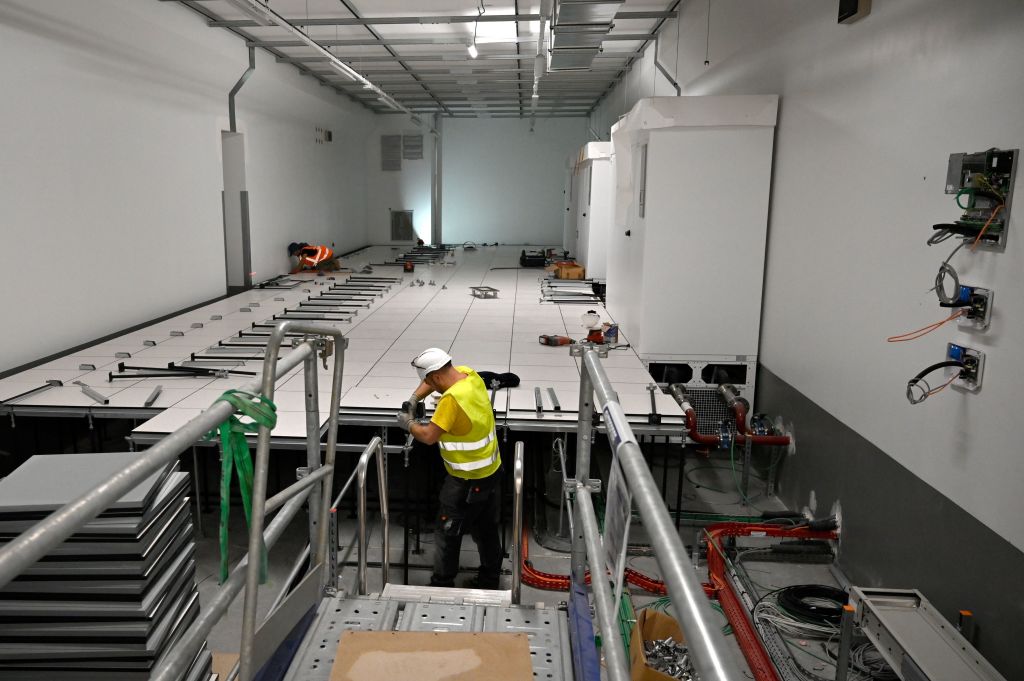KKR’s Big Ambition to Build Digital Infrastructure for the FutureKKR’s Big Ambition to Build Digital Infrastructure for the Future
It’s the latest of big funds piecing together vast, comprehensive infrastructure platforms for connectivity and computing.
June 16, 2020

Big investment funds are building digital infrastructure conglomerates comprising the whole chain of industries that carry the internet services that have become vital during the world's coronavirus lockdown, according to a businessman with a $2.5 billion budget to build part of it.
These digital infrastructure conglomerates will run not only the massive data centers that have become visible symbols of of the internet's growing use, but the energy infrastructure that powers them, the fiber optic cables that connect them to the outside world, the cell towers that connect people wirelessly to the cables, and the software that holds it all together.
Franek Sodzawiczny, a veteran data center builder, in May took charge of a plan to build a European data center empire as part of such a conglomeration plan for investment fund KKR & Co., Data Center Knowledge can exclusively reveal. Sodzawiczny told us he was already in talks with prospects to build or buy data centers at 18 locations in 12 European countries. To do this, KKR committed to invest $1 billion in a venture it established called Global Technical Realty SARL and arranged $1.5 billion in additional financing as well.
Previously Sodzawiczny was CEO and founder of Zenium, a hyperscale data center provider with properties in London and Frankfurt, two of Europe's largest data center markets. That company, which was backed by Quantum Strategic Partners, a private investment fund managed by Soros Fund Management, was sold to the global data center REIT CyrusOne in 2017 for $442 million.
Sodzawiczny told Data Center Knowledge that public demand for digital services has become so great during the lockdown that massive data centers must now be built across Europe to carry the extra load, where before they have been concentrated in big financial centers.
"The way to look at this market is to have not just the data centers, but fiber, towers, software, and cyber security," he said. "Within our platform we will have all these parts in a structure. To be able to offer all that, this is the ambition of what KKR are looking at."
The idea is that a data center cannot function without power, or without fiber -- and that fiber is useless without data centers as well.
"If you bring all that together you've got an incredible holistic solution. That's the aspiration, the vision, of the big organizations thinking about this," said Sodzawiczny.
The very same plan has been adopted by one of the other investment funds that has moved into digital infrastructure in recent years. Colony Capital, which has invested $20 billion in fiber, cell towers, and data centers over the last 20 years, makes related parts of its conglomerate benefit from each other by putting their development plans in tandem. Its data center arm, for example, might build where cables are known to be going, and its cables and cell tower businesses might invest in places where their group is building data centers.
KKR's ambition was demonstrated by the $5.2 billion deal it struck to buy UK waste recycler Viridor in March, said Sodzawiczny, who envisions GTR building data centers next to KKR waste plants, so they can be powered with sustainable energy. Other notable acquisitions KKR has made recently include a majority stake in Etche, a French investor with over $450 million in light industrial real estate, as well as investments in global submarine cables, and in solar energy and mobile providers in India.
"We are not thinking about this in the short term", said Sodzawiczny. "We are talking a medium and long term strategy. Because this is one hell of a thing to try and do," he said.
GTR has just begun working on its plan to build data centers, but Sodzawiczny is looking ahead.
"We are very open to looking at M&A (mergers and acquisitions)", he said. "Clearly, with companies in the data center sector or the fiber sector."
The venture is being propelled by demand from businesses that have dealt with the lockdown by having staff work from home, and which now plan to continue letting employees work remotely even after the pandemic is over, said Sodzawiczny. The cloud companies to whom GTR plans to rent its hyperscale data centers wholesale, want to get their servers closer to these people, meaning data centers will be needed in cities where the industry had not been concenrated, such as Lyon, Hamburg, Berlin, Milan, Rome, Naples.
Sodzawiczny said GTR plans to build hyperscale data centers with power capacities of 20-100MW.
Mark Trevor, who was partner at commercial estate agent Cushman & Wakefield until he joined Sodzawiczny in May, said GTR aims to build data centers for only the large cloud companies -- or those carrying most of the services delivered during the current boom.
"We are just going to focus on those three, four, or five customers, and really building-out facilities in geographies where they want to be," he said. GTR would avoid what he said is the usual wholesale data center business model of renting space in kilowatt lots to any company that wants it. Instead, it would sell only in megawatt lots.
Read more about:
EuropeAbout the Author
You May Also Like







